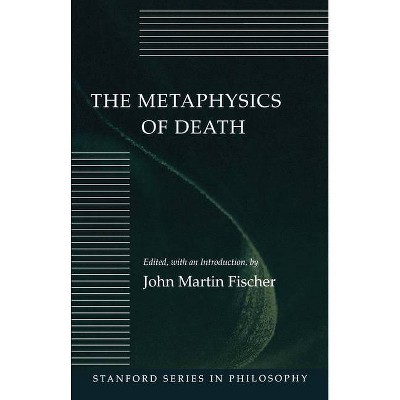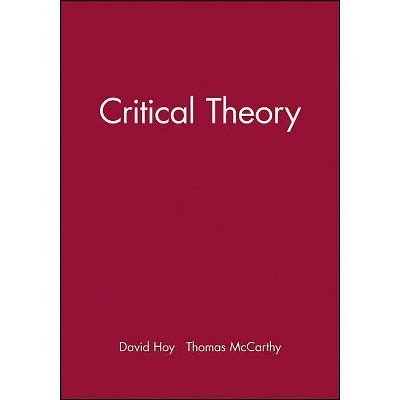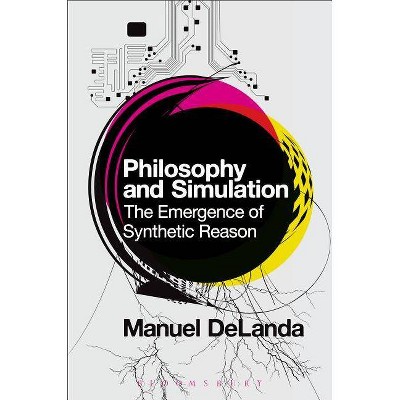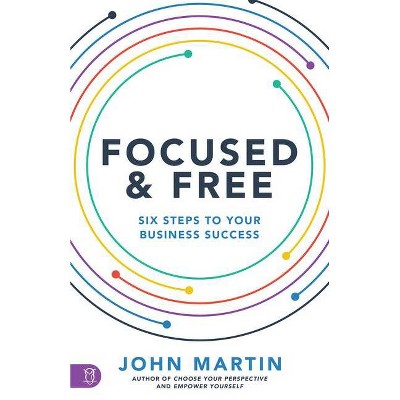Four Views on Free Will - (Great Debates in Philosophy) by John Martin Fischer & Robert Kane & Derk Pereboom & Manuel Vargas (Paperback)

Similar Products
Products of same category from the store
AllProduct info
<p/><br></br><p><b> Book Synopsis </b></p></br></br>Focusing on the concepts and interactions of free will, moral responsibility, and determinism, this text represents the most up-to-date account of the four major positions in the free will debate. <br /> <ul> <br /> </li> <li>Four serious and well-known philosophers explore the opposing viewpoints of libertarianism, compatibilism, hard incompatibilism, and revisionism<br /> </li> <li>The first half of the book contains each philosopher's explanation of his particular view; the second half allows them to directly respond to each other's arguments, in a lively and engaging conversation<br /> </li> <li>Offers the reader a one of a kind, interactive discussion<br /> </li> <li>Forms part of the acclaimed <i>Great Debates in Philosophy</i> series</li> </ul><p/><br></br><p><b> From the Back Cover </b></p></br></br>The question of free will- what it is, if it can exist, and if humans have it- has always sparked debate from philosophers and theologians; advances in cognitive science have served to sharpen the conversation. There are a number of common core arguments about the nature or existence of free will, and this volume takes an interactive look at the debate between four representative views. The first half of the book contains each philosopher's explanation of his particular view; the second half allows them to directly respond to each other's arguments, in a lively and engaging conversation. <p>Focusing on the concepts and interactions of free will, moral responsibility, and determinism, this text represents the most up-to-date account of the major positions in the free will debate. The book takes up the opposing viewpoints of libertarianism, defended by Robert Kane; compatibilism, defended by John Martin Fischer; hard incompatibilism, defended by Manuel Vargas; and revisionism, defended by Derk Pereboom. Original and compelling, <i>Four Views on Free Will</i> offers a balanced and enlightening discussion on all of the critical concepts and conflicts in the free will debate.</p><p/><br></br><p><b> Review Quotes </b></p></br></br><br>?This book presents four recent positions on free will in a clear and accessible way, along with their authors' responses to each other's position.? ( <i>Metaphilosophy</i>, January 2009) <p>There is no better introduction to the debate available. This is a book that will be read with profit by anyone who opens it, specialist or newcomer. <i>Neil Levy, Metapsychology Online Reviews</i><br /> </p> <p><i>Four Views on Free Will</i> is an excellent introduction to the current debate regarding one of the most seductive of the perennial topics in philosophy. It is an especially welcome addition to Blackwell's Great Debates in Philosophy series. The goal is the presentation of a considerably more dialogical and engaging introduction to the main issues in an important domain of philosophical inquiry than can typically be achieved in a standard monograph. <i>Four Views</i> succeeds admirably in achieving this worthwhile goal. <i>Daniel Speak, Notre Dame Philosophical Reviews</i><br /> </p> <p><br /> </p> <p>This gem of a book provides a wonderfully accessible introduction to the free will debate by leading proponents of four major views, as well as a front row seat to a dynamic, up-to-the minute philosophical conversation.<br /> <i>Dana Nelkin, University of California at San Diego</i><br /> </p> <p>This four-way debate is a fine addition to the Great Debates in Philosophy series. Four Views on Free Will is ideal for advanced undergraduate courses on free will.<br /> <i>Alfred R. Mele, Florida State University</i><br /> </p> <p>?The four main essays are clearly written and argued, and the shorter articles are very useful as illustrations of how philosophers debate. Highly recommended.?<br /> <i>Choice Reviews<br /> </i></p><br><p/><br></br><p><b> About the Author </b></p></br></br><b>John Martin Fischer</b> is Distinguished Professor of Philosophy at the University of California, Riverside, where he is a holder of a UC President's Chair. He is the author of <i>The Metaphysics of Free Will: An Essay on Control</i> (Blackwell 1994); <i>Responsibility and Control: A Theory of Moral Responsibility</i> (with Mark Ravizza, 1998); and <i>My Way: Essays on Moral Responsibility</i> (2006). He has written extensively on free will, moral responsibility, the metaphysics of death, ethics, and the philosophy of religion.<br /> <p><b>Robert Kane</b> is University Distinguished Teaching Professor at the The University of Texas at Austin. He is the author of <i>Free Will and Values</i> (1985), <i>Through the Moral Maze</i> (1994), <i>The Significance of Free Will</i> (1996), <i>A Contemporary Introduction to Free Will</i> (2005) and editor of <i>The Oxford Handbook of Free Will</i> (2002) and a collection of readings, <i>Free Will</i> (Blackwell, 2002). He is a member of the Academy of Distinguished Teachers at the University of Texas at Austin.<br /> </p> <p><b>Derk Pereboom</b> is Professor of Philosophy at the University of Vermont, where he has been since 1985. He will join the Sage School of Philosophy at Cornell University in 2007. His book, <i>Living Without Free Will</i> (Cambridge University Press) appeared in 2001, and he has published articles on free will, philosophy of mind, history of modern philosophy, and philosophy of religion.<br /> </p> <p><b>Manuel Vargas</b> is Associate Professor of Philosophy at the University of San Francisco. He has published articles on a range of topics, including free will and moral responsibility, practical reason, evil, and Latin American philosophy.</p>
Price History
Price Archive shows prices from various stores, lets you see history and find the cheapest. There is no actual sale on the website. For all support, inquiry and suggestion messagescommunication@pricearchive.us



















